*This is an excerpt from the introduction to my book SAVAGE Revolution: Overthrow The Status Quo In Baseball Player Development*
SAVAGE Revolution is a book about training baseball players.
That seems simple enough, right? Unfortunately, it is not because humans are complex.
We built the thesis of this book around an emerging movement science discipline known as Ecological Dynamics. According to Button et al., ecological dynamics is “a theoretical framework that combines key ideas for ecological psychology and dynamical systems theory.” (1). Ecological Dynamics is the foundation of SAVAGE Training and the future of baseball player development.
For years baseball training had been stuck on long-held traditions, as many have been resistant to change. Fortunately, over the past decade, pro organizations, realizing the inconsistency of building rosters around the practice of purchasing aging talent, have begun looking beyond conventional, long-established methodologies to improve player development. One recently hired farm director reported that upper management tasked him “to find 16 MLB wins a year through player development.” That is indeed refreshing. However, changes of this nature have been slow to come. Interdisciplinary siloing and resistance from “old school” codgers who cling to the status quo because “it worked for …” have presented significant roadblocks to progress.
Those who resist new ideas like Ecological Dynamics because “we're just trying to make it complicated” should understand something. It IS complicated!
But, we can solve the complexity, and we can make it “simple” to apply.
When die-hards cling to old ways, resist progress, and oversimplify skill acquisition, they are banking on a “survival-of-the-fittest” outcome. A few players will overcome their methods, grind away with “deliberate practice” (10,000 hours of inadequate training), and excel.
These inflexible old-liners will predictably label the winners “gifted” or “dedicated” and present them as undeniable evidence of the effectiveness of their customary ways. Membership in the winner's club is maddeningly exclusive.
Meanwhile, the message to legions of “losers” is that their practices are not long enough, deliberate enough, or frankly, they weren't talented enough; when in truth, the reason they failed was that their training wasn't good enough.
It's a standard attribution error repeated throughout baseball and nearly every other pursuit in human life. It's known as The Survivorship Bias – the tendency to make decisions based on observations of things or people who made it past some selection process while ignoring those who did not.
In his book, How Not To Be Wrong: The Power of Mathematical Thinking (2), mathematician and author Jordan Ellenberg describes this logical error with a story about WWII era Columbia University statistics professor Abraham Wald. A brilliant man, Wald was a member of the US Navy's highly classified Statistical Research Group, which was tasked with deciding where to place reinforcing armor on US fighters and bombers. Ellenberg writes:
“So here's the problem. You don't want your planes shot down by enemy fighters, so you armor them. But armor makes planes heavier, and heavier planes are less maneuverable and use more fuel. Armoring the planes too much is a problem; armoring the planes too little is a problem. Somewhere in between, there's an optimum.”
Armoring the planes too much is a problem; armoring the planes too little is a problem. Somewhere in between, there's an optimum.”
Most of the statisticians in this think tank agreed on a simple solution. The bullet holes on the surviving planes were typically clustered around the tail and the fuselage, so it would make sense to armor the aircraft there.
Abraham Wald disagreed.
He realized the aircraft that did not return were probably being hit the most where the survivors were not — in the engine.
He suggested the planes be armored where the aircraft that returned had not been hit. It's a policy that still stands in combat aviation today. The majority of the group had ignored The Survivorship Bias. Thankfully, Wald had not.
If we continue to accept the status quo in coaching, we should admit that we're not really in the business of player development. Instead, we're engaged in an enterprise that is nothing more than scouting, selecting, and eliminating.
Count me out on that.
I genuinely believe anyone, given the proper training, a player can change his body into anything he wants it to become. We say it all the time:
God doesn't make junk, and human tissue doesn't have free will. 
If we properly stretch it, a muscle must get longer. If we properly strengthen it, a muscle must get stronger. If we properly teach it, the body must learn. It has no choice, no say in the matter. This fundamental truth is at the core of SAVAGE Training.
If you're tired of burying yourself in “deep practice,” and banging your head against the same old antiquated, inefficient, survivorship biased methods. We have the solution for you.
“If it takes 10,000 hours, you probably got it wrong for 9,999 hours.” – Frans Bosch.
Here are the 3 ways to initiate the SAVAGE transformation that will change your baseball career and your life forever.
- Register for one of our monthly Weekend SAVAGE Training Camps at floridabaseballarmory.com/weekend
- Join our extended stay (Monday through Friday) SAVAGE Summer Training Program at floridabaseballarmory.com/summer
- Schedule a 4-hour Precision Strike One-Day One-On-One Evaluation and Training Session. Learn more at floridabaseballarmory.com/precisionstrike
Or just call us at 866-STRIKE3 (866-787-4533). We'll answer all your questions and customized a training experience that meets your needs precisely.
It's time to Overthrow The Status Quo.
Let's Get SAVAGE!
- Button, C, Seifert, L., Chow, JY, Araujo D., Davids, K. (2021). Dynamics of Skill Acquisition: An Ecological Dynamics Approach. Champagne, IL. Human Kinetics
- Ellenberg, J., How Not To Be Wrong: The Power Of Mathematical Thinking, (2014) New York, NY, Penguin Books
If you'd like to purchase https://chamanlawfirm.com/about-us/ an electronic copy of SAVAGE Revolution, or any of my other books on baseball training, go to our online store at floridabaseballarmory.com/books.
About the Author:

Randy Sullivan, MPT, CSCS
CEO, Florida Baseball ARMory
Our founder and CEO, Randy Sullivan wears a bunch of hats: Physical Therapist, Baseball Instructor, Certified Strength & Conditioning Specialist, Paid Player Development Consultant to MLB teams, Public Speaker and of course an Author.

